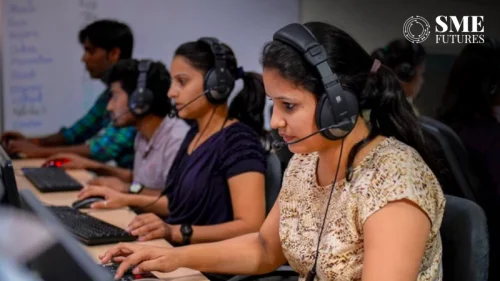The world is topsy-turvy struggling to cope with the COVID-19 Pandemic. The hit was so sudden, unexpected far beyond our imagination, leaving no one in its spread – people, industries and countries. COVID-19 is the ultimate VUCA – Volatile, Uncertain, Complex and Ambiguous. We have still not found an answer, the solutions that have emerged only talk about containment. There is no cure in sight. Recent developments indicate that this VUCA situation will continue for another three months and more if the lockdown produces inadequate results.
The worldwide shutdown has hugely impacted industries and companies — never seen after World War 2. As per an ILO report, full and partial lockdown has affected 2.7 billion workers, representing 81% of the global workforce.
Work from home is the only option available with companies for business continuity. Even companies with robust flexi-working and work from home practices are finding it difficult to cope with remote working at such a large scale. It is tough to imagine the plight of organisations, who were not equipped and do not have the necessary infrastructure, policies, practices and protocols in place.
Besides, business continuity, delivery of service and work performances are also adversely impacted when all stakeholders – customers, colleagues and vendors – are working from home with severe restrictions depending on the industry, job role and level of preparedness.
Three categories of employees have surfaced in this situation –
a) employees who are idle since their work cannot be done from home, b) employees rendering a portion of their job responsibilities and c) the ones who can deliver 100% of their deliverables due to their job role.
The current situation challenges those who are working from home. Average household size in India is a minimum of five members. And about 70% of the houses do not have more than two rooms, making it difficult for a person to work in privacy without disturbances. It is leading to stress and conflicts at home.
Work culture embodies the spirit and soul of an organisation. Organisational culture today is adversely impacted in this unprecedented crisis. Cultures that organisations have carefully built are threatened with the COVID-19 disruption. Some of the critical aspects of workplace culture have suddenly become non-existent or difficult to practice – office environment, routines, rituals and camaraderie. There is also a dramatic shift in working style – virtual and alone. With the fear of pay cuts and job losses looming large, work culture may be the last priority in anyone’s mind, giving way to discrimination and exclusion, however, perceived or real they may be.
In such a situation, how do organisations cope with this disruptive change? The answer lies in the organisation’s culture driven by its strong values. Organisations have to be innovative in creating a virtual office environment filled with routines, rituals, practices that suit remote working. Build employees’ capability to work virtually, helping them adapt to the new working style and enabling them to cope with the challenges of remote working. Ensure that no one is discriminated or excluded while communicating and assigning work.
Manifestation of Unconscious bias is seen during such crises. It becomes pertinent for leaders to lead from the front, frequently communicating with utmost transparency and empathy. Creating effective redressal and conflict resolution mechanisms to address grievances and conflicts will help in building trust and confidence. Counselling support to those facing anxiety, loneliness will ensure a confident and motivated workforce.
It is imperative to provide clarity on goals and targets to all those whose roles and responsibilities have changed. Organisations must also start working on a structured approach towards remote working. Start-ups and seasoned players have spread their offerings on solutions that enable seamless transition to remote working. One such solution is Avtar’s Flexcurity, which is a suite of assessments and algorithms designed to help organisations to implement remote working.
On a positive note, humanity will soon overcome COVID-19 like so many other catastrophic events, wars and epidemics in our history. A word of caution, though, VUCA is here to stay. It is time for organisations to be agile and prepared to face it.
Going forward, to stay relevant and build robust businesses, both employees and employers will have to develop their work cultures on the foundation of three pillars – Trust, Transparency and Technology. Resilient and futuristic leaders will drive their employees by laying the trust in them with a higher degree of transparency by the effective use of technology!











